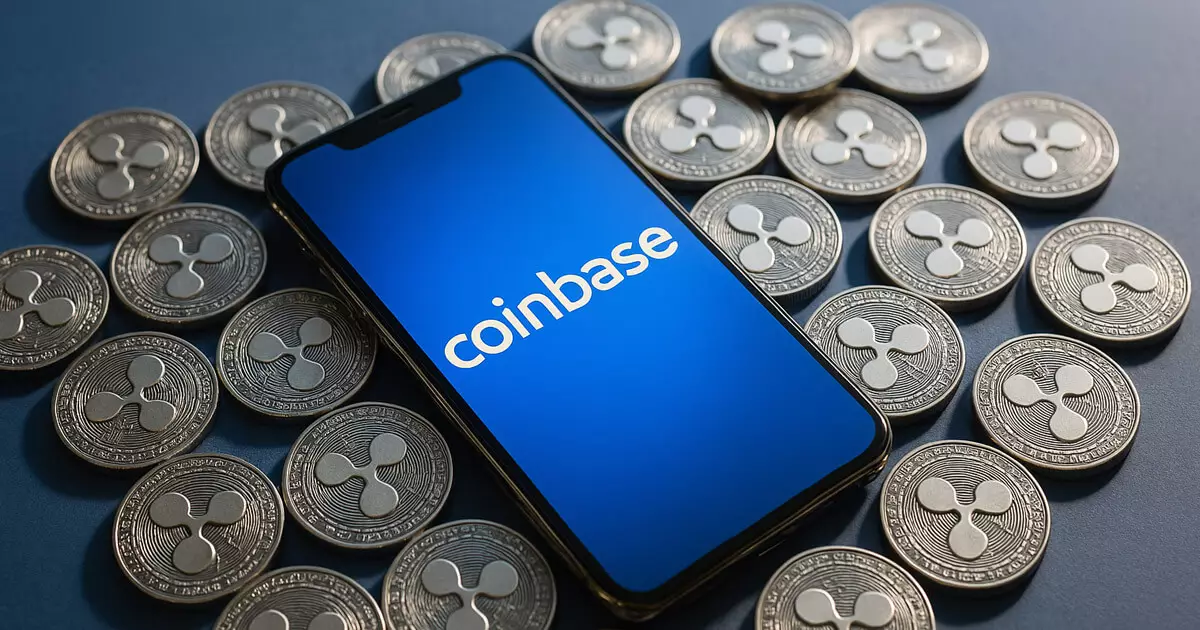Coinbase Derivatives is poised to change the game by filing with the US Commodity Futures Trading Commission (CFTC) to introduce an XRP futures contract, a proposition that could ignite a surge of institutional interest in cryptocurrency. Set to potentially launch trading as early as April 21, 2025, this strategic initiative could redefine how institutional investors engage with digital currencies. While the idea of futures contracts may not seem revolutionary at first glance, the implications for XRP, often shrouded in regulatory ambiguity, cannot be overstated.
The significance of this filing lies not just in offering a new product but in providing a regulatory framework that could bolster XRP’s legitimacy within traditional financial communities. The ability for Coinbase to self-certify this product could streamline access for investors, enabling them to engage with XRP derivatives in a way that’s both capital-efficient and compliant.
Market Responses and Emerging Opportunities
The timing of Coinbase’s filing is also telling. XRP has shown unprecedented resilience, recently being hailed as the best-performing cryptocurrency within the top 10, gaining over 2% in a day when the rest of the market faltered. This signal reflects more than just short-term speculation; it showcases a growing confidence among market participants in the potential of XRP, especially following Ripple’s recent settlement with the SEC. This outcome has been pivotal in clarifying the asset’s regulatory standing and could play a crucial role in facilitating XRP ETF launches.
There’s something undeniably promising about this development. As market analysts point out, Bitcoin and Ethereum only gained ETF approvals after their futures market matured. XRP’s proposed futures might create a vital precedent, providing regulators with a tested framework for future products, thereby allaying fears related to market manipulation and price discovery.
An Institutional Awakening
The shift among institutional players is palpable. With at least nine asset managers—ranging from well-known firms like WisdomTree to newcomers like Canary Capital—eyeing XRP ETFs, it’s clear that the assets once considered too volatile or uncertain are now on the verge of mainstream acceptance. According to crypto analyst Nate Geraci, the conversation around an XRP ETF has shifted dramatically from regulatory hurdles to simple timing. This shift signals that institutional players are not only ready but also competitive in this evolving landscape.
It’s particularly intriguing to witness the momentum build around XRP after years of scrutiny. The recent settlement has effectively wiped clean one of the last significant barriers, and now the doors are flinging wide open. Institutions are clearly planning for a future where access to these regulated products becomes the norm, and XRP could very well be at the forefront.
A Vision for the Future of Financial Markets
As we contemplate the future of the financial landscape undergirded by rapidly evolving technologies, the introduction of regulated derivatives like XRP futures could become the foundation for integrating cryptocurrency into the broader financial system. With such offerings, we might finally see the convergence of traditional finance and innovative digital assets, ushering in a new era that allows both retail and institutional investors to engage in a reliable, transparent market.
The positivity surrounding XRP futures is palpable, and it underscores the necessity for a more nuanced understanding of cryptocurrency’s evolving role. With established players like Coinbase taking the lead, what we are witnessing might not just be a product launch; it could be the dawn of a new financial paradigm where digital assets are treated with the legitimacy and rigor they deserve. The transformation of XRP from an asset mired in ambiguity to a cornerstone of institutional investment speaks volumes about our shifting landscape, ready to embrace the new age of finance.



















